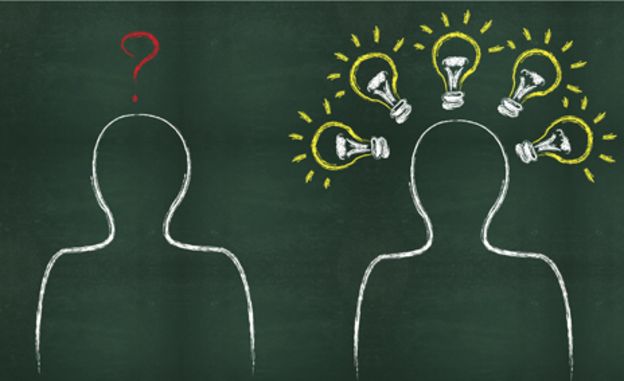- Get link
- X
- Other Apps
- Get link
- X
- Other Apps
It's 10 years since the quiz show Eggheads was first broadcast. But does everybody have the potential to be a pub quiz genius?
What year was the Battle of Lepanto? Who was the first black footballer to play for England at any level? What is autarky? Who discovered the element polonium? Which actor was dubbed the Man of a Thousand Faces? Which tempo in music is slower - andante or adagio?
If what just came into your head was 1571, Benjamin Odeje, state of self-sufficiency, Pierre and Marie Curie, Lon Chaney and adagio, then it's entirely possible you are a bit of a monster at your local pub quiz.
Thankfully, Egghead and competitive quizzer Pat Gibson doesn't really bother with pub quizzes. Any non-quizzer encountering him might assume he was born with an innate sponge-like ability to hoover up information and regurgitate it in a competitive scenario.
Gibson was Brain of Britain 2006, winner of Mastermind in 2006, Mastermind Champion of Champions, and has just won his fourth quiz world championship. Oh, and he won £1m on Who Wants To Be A Millionaire?

So does he have the innate ability to ambiently build up a database of trivia? Or can we consciously cram our brain with information?
"I think you can," says Gibson. "It is a frame of mind. After years of carefully reading the papers it has become ingrained in me. I'm consciously looking out for interesting snippets."
Experienced quizzers like Gibson go through a constant process of second-guessing the people who set quizzes.
"I was watching this year's Tour de France when South African rider Daryl Impey took the yellow jersey," says Gibson. "The commentator said he was the first African to do this. I immediately said: 'That's a good quiz question'."
The question would be tempting for any quiz setter as many punters might answer Chris Froome (British but born in Kenya).
"I take notes from the newspapers," says Gibson. "I used to just take it as a snippet. I now save the note as a question. It gives you an appreciation for what makes a good question."
Fellow Egghead Dave Rainford has also gone through a conscious process of building up knowledge.Image capt
"I was reasonably knowledgeable about sport. From that my interest grew into other things," he says.
Rainford has worked hard on what was his weakest subject - science. "I don't think that's a particularly strong point of mine. But through quizzing I've developed more of an interest in it than when I was at school."
Both Gibson and Rainford agree that the major ingredient for building up general knowledge is having a wide breadth of interests.
"Some people are happy to read through encyclopaedias and textbooks," says Rainford. "Other people can learn things in a different way. As long as it's fun for you - I don't think anyone has successfully done it as an obligation."
Quizzers admit to occasionally taking educated guesses, but usually access to the memory banks is both clear and rapid.
Gibson recalls one anecdote that sums up how a quizzer's brain can work.
"I was once asked: Which US spy ship was captured by North Korea in 1968? In an instant I remembered being a child in Donegal and flicking through an article in Reader's Digest. It was about the USS Pueblo. That journey took place in a quarter of a second. I was back in my childhood home."
But are the brains of the likes of Gibson different from the rest of us?
"There is definitely a biological basis to our abilities, but at the same time relying on your basic biology wouldn't make you good enough," says neuroscientist Prof Annalena Venneri, of the University of Sheffield.
android app
android game
android quiz
android trivia game
dungeon quiz
fun trivia
question of the day
quiz
quizheroapp
trivia fun
trivia of the day
- Get link
- X
- Other Apps

Comments
Post a Comment